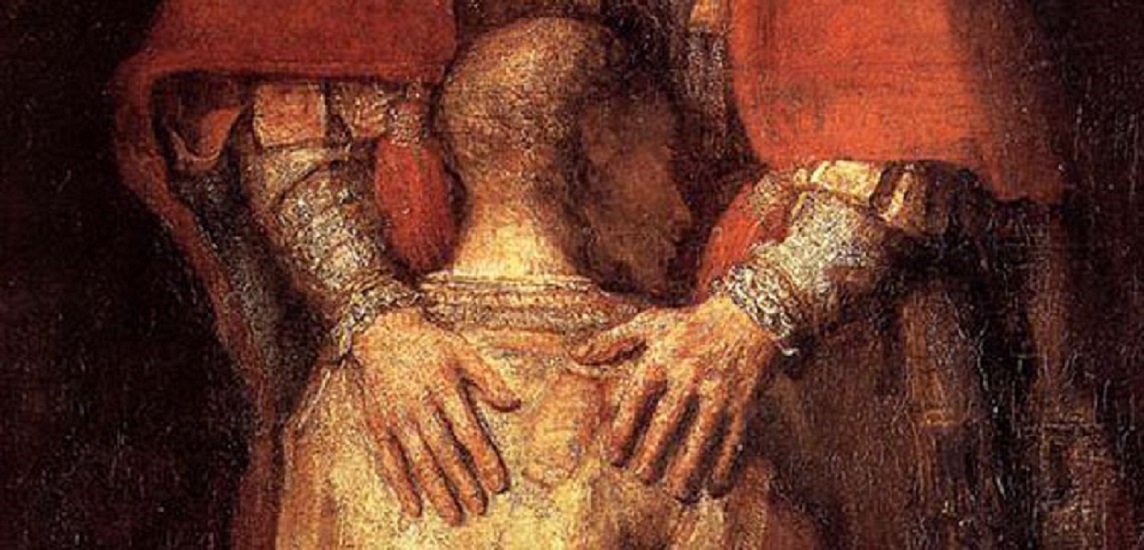Yesterday was Laetare Sunday. It marks the midpoint of Lent; the message of the liturgy is “rejoice!” (which is what laetare means.) We are so close to Easter. We are working hard to correct faults, to grow closer to God, to grow in faith, love, charity. We seek forgiveness for our sins; we yearn to know God’s love and mercy.
The Gospel for this past Sunday was one of the best known in all of Scripture: the parable of the Prodigal Son. Henri Nouwen, a Dutch priest, wrote a small book on this parable, The Return of the Prodigal Son: A Story of Homecoming. Nouwen was absolutely captivated by Rembrandt’s painting of the prodigal son, where the painter captured the moment that the prodigal son flings himself at the feet of his father, seeking forgiveness.
Nouwen says this about “forgiveness,” a theme that is an integral part of the Prodigal Son story: “One of the greatest challenges of the spiritual life is to receive God’s forgiveness.”
How can this be? Aren’t we supposed to be able to go to God and be forgiven for anything? When we leave the confessional, aren’t we supposed to feel renewed? Don’t we leave all our sins behind?
It is supposed to work that way, but it doesn’t always. Sometimes the hurts and wounds we carry from our sins and the sins of others are so deep, so frightful, so damaging, we don’t feel forgiven, nor do we want to forgive someone else. Our mind tells us one thing (“Of course you’re forgiven! You just made a good confession”) and our heart tells us another (“I still hurt. This is so painful for me.”)
We see this in the parable. The eldest son, upon learning that his father is throwing a party for the younger son, gets angry. “I’ve been here all this time, doing the right thing. I’ve been working alongside my father. I’ve been good. Why is he getting a party?? I’ve never had a party.” The older son is jealous and mad and unforgiving. He’s hurt. He doesn’t see any room for forgiveness. He doesn’t understand how the father can forgive the hurts of the past so quickly, so effortlessly.
A bit later in his book, Nouwen states, “Receiving forgiveness requires a total willingness to let God be God and do all the healing, restoring, and renewing.” Are we totally willing to let God into our damaged relationships? Are we totally willing to allow God to restore us? Are we totally willing to set aside jealousy, hurt, pain, resentment, bitterness, grudges, annoyances in order to allow God to work in our lives?
Forgiveness is radical. It requires us to be “all in,” to get out of God’s way and allow His will to be done. We can be healed, restored, renewed. But we cannot do this ourselves. Only God can. Just like the Prodigal Son, we must be willing to throw ourselves at the feet of God, and tell him, “I cannot do this on my own. I hand everything over to you. Your will be done.” Only then will God’s love and mercy heal us.

